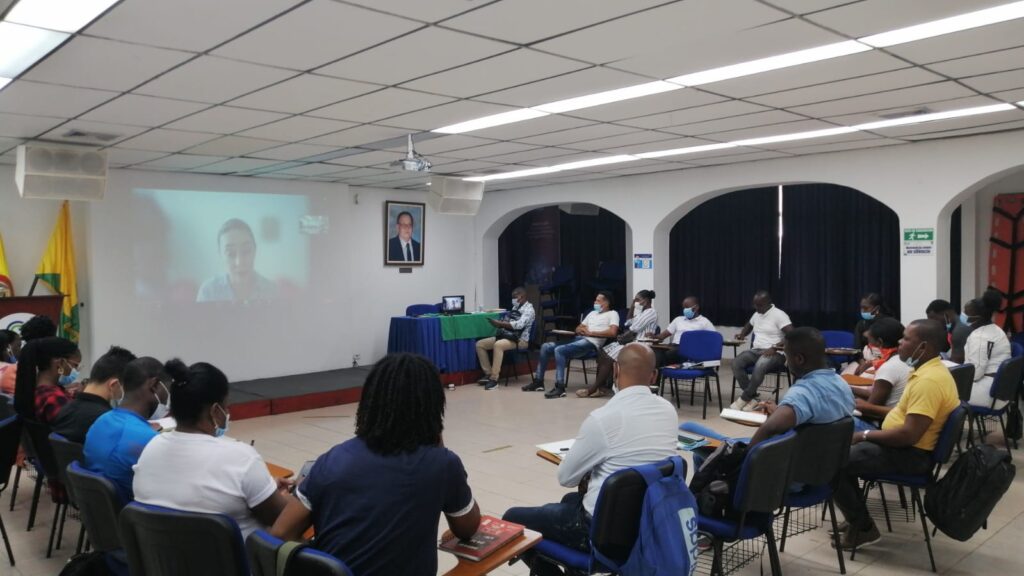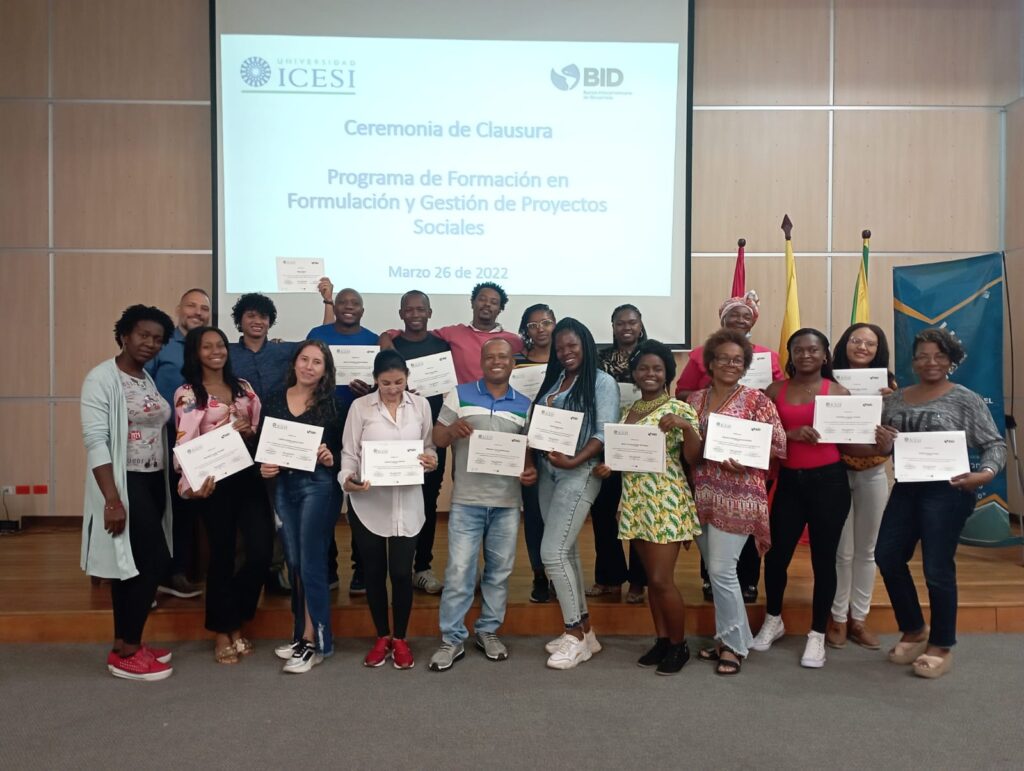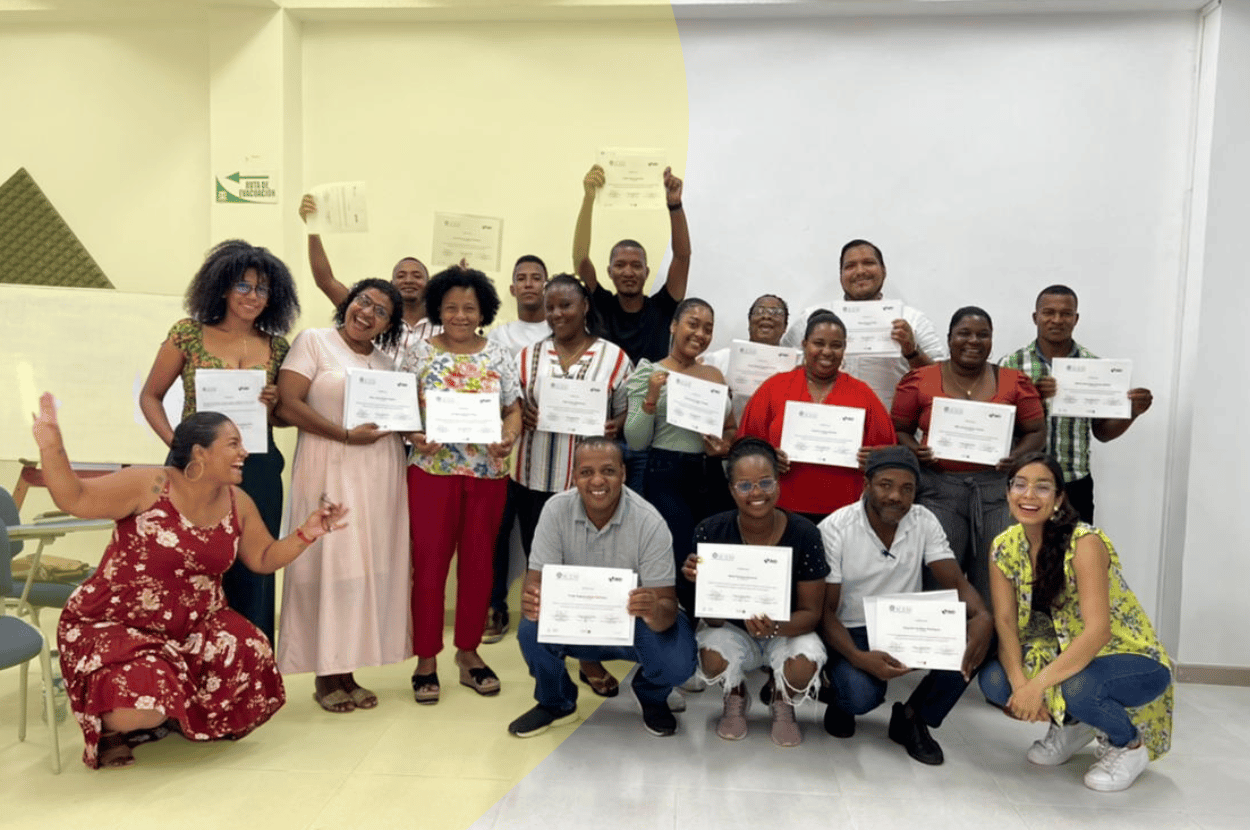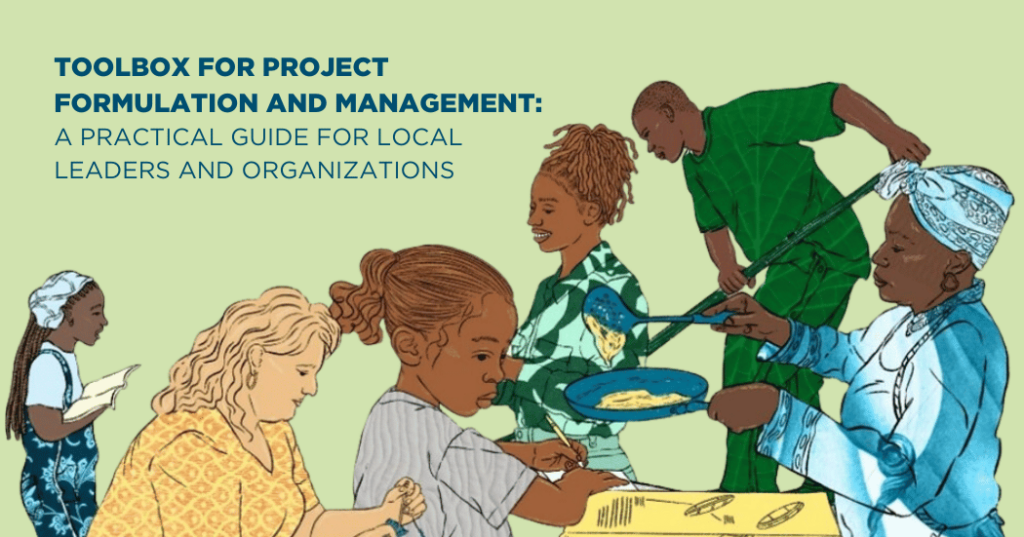“There are a number of problems that frustrate the ‘buen vivir’ (well-being) of black people in Colombia on a daily basis” says Mayra, an Afro-Colombian leader from the municipality of Guachené, Cauca. Some of these problems, she says, could be solved through projects carried out by the Afro-Colombian communities themselves. However, she believes that their own resources are not enough and that “there is no strong dynamic in terms of project development” to access external financing and achieve successful solutions.
Like Mayra, other leaders of Afro-descendant organizations in the Colombian Pacific region consider that many funding opportunities for initiatives fail to “land” in the territories due to the lack of staff trained in project formulation and management. This means that certain initiatives lose the possibility of being strengthened with private resources, international cooperation, or public sector grants. The institutions have certain guidelines that a project requires in order to obtain funding for it, which is difficult to achieve without adequate knowledge.
Although there is little information on this issue, some studies indicate that for 80% of Afro-descendant organizations, their greatest need for additional training is related to the design, formulation and management of projects.
Projects from the communities for the communities
Although there is a wide range of virtual courses for certification in these areas, many of them do not have coverage in the territories of these organizations. These do not recognize their connectivity conditions nor do they have adequate pedagogical materials or methodologies.
The communities are the ones who best know their own challenges, needs and priorities. Therefore, it is essential that they have the skills to formulate, present and manage their development projects. And that, when offering training on these topics, their learning requirements are taken into account in a customized manner. As Fanor – leader of the Afro-descendant Community Council of La Toma (Suárez, Cauca) – affirms:
Our ancestors have given us the necessary guidelines to be able to move our communities forward, but we need to complement that mandate with good training, and good training must be framed with a good project formulation. The good ideas are given to us by our ancestors and we, as new leaders, what we are doing is to transmit those ideas in a grounded, measurable project that can be presented to the competent entities.
Strengthening of skills with identity
For this reason, the Gender and Diversity Division of the IDB conducted five training cycles for Afro-Colombian leaders and organizations on project formulation and management between January 2022 and July 2023. This cooperation has provided leaders with the knowledge and practical tools so that they can apply for funding by themselves for solutions that contribute to the economic, social and environmental development of their communities.

The training process was carried out in five cities: Buenaventura, Cali, Quibdó, Santander de Quilichao and Tumaco.
Through collaborations with the Universidad de los Andes, Universidad del Cauca and Universidad Icesi, more than 150 Afro-descendant leaders were identified.
In this process, they learned from project writing and budgeting to the use of management and monitoring tools.
What challenges do Afro-descendant organizations face?
The lack of competencies in project management and the need to promote solutions that strengthen their institutional capacity are framed in a context of historical exclusion of Afro-Colombian communities:
- In this population, which represents 9.34% of the country’s total, the Multidimensional Poverty Index (MPI) reaches almost 40%. Meanwhile, in the population that does not self-identify with any ethnic group, the figure is 22.5%.
- They experience greater barriers in education: 6.1% have no formal education and more than 8% do not know how to read or write.
In this context, it was important to plan customized follow-up sessions tailored to the demands of each participant. Thus, the strengthening of other competencies in reading, writing and digital skills was supported. Although the training process had a limited scope due to the gaps experienced by the Afro-descendant population in the country, the lesson learned was the need to increase and complement the learning offer to respond to the particular conditions of these communities.
This and other experiences have taught us that when we put people first, we get better results.

Keys to success for the training project
1. Selection of participants
In order to guarantee capacity building for Afro-Colombian organizations, it was essential to have a rigorous selection process. In this process, people who were in charge of community development projects and who were interested in remaining in the territories were identified. In addition, a commitment was made to develop a project throughout the training.
2. “Learning-by-doing” Methodology
The people who participated in the training highlighted that one of the most relevant aspects of the training was the methodology, since “it makes it easier to acquire the information and put it into practice immediately”. This was pointed out by Rodolfo, a participant in the municipality of Quibdó. For this purpose, a strategy was designed combining two types of sessions: group sessions on theory and other technical assistance sessions in which the acquired knowledge was put into practice through the development of their own project.
3. Personalized follow-up
Through technical cooperation, we were able to hire managers and monitors who accompanied the participants on a weekly basis in the formulation of their projects. This allowed us to reinforce the contents of the training on a permanent basis and support the formulation of more than 70 projects. In addition, the follow-up and technical assistance sessions were scheduled according to the students’ available schedules, which ensured greater flexibility in the process.
A virtual toolbox to increase impact
To increase the outreach of the contents, we designed an open-access virtual learning platform. This interactive publication, prepared in collaboration with Universidad de los Andes, explains the different phases of the presentation of public investment projects. Through texts, didactic videos, templates and links to complementary materials, each stage is addressed from identification, preparation, evaluation and management.
With these interactive products we hope that the training efforts will be expanded to other communities and can serve as inputs to replicate the process. The pedagogical materials are also available for download so that they can be worked on individually or collectively offline. This process responds to one of the very needs we encountered during face-to-face training, as Fanor points out:
When the people of my community found out that I was studying project formulation, more than one group of young people became interested in me replicating this information, so I finished the classes here in Santander de Quilichao and I went to my municipality of Suárez, La Toma, to meet with young recyclers, young farmers and the Governing Board of the Community Council.
We invite you to explore and share this toolbox to strengthen the formulation of your or your community’s projects!



Leave a Reply